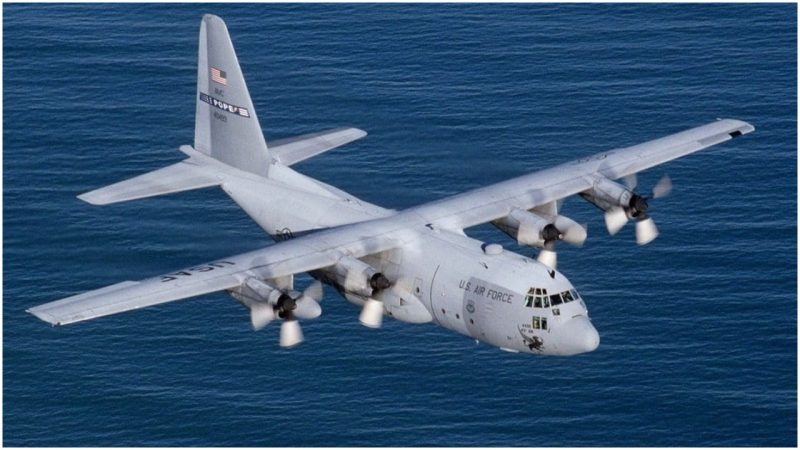At 5 A.M. on May 23, 1969, in Suffolk, England, a Hercules C-130E roared to life. With its propellers spinning, the plane lurched forward. The problem? No pilot was on board, only a mechanic. And a drunk one at that, who’d been up all night attempting to drown his many sorrows. And now Ground Crew Sergeant Paul Meyer was in the cockpit of a 60-ton transport aircraft, rumbling down the runway.
Security patrols rushed to the scene, but there was nothing they could do to stop Aircraft 37789 from taking flight. Meyer lifted off and banked left almost immediately, according to witnesses, who reported that his wingtip nearly nipped the ground.
Sergeant Meyer had been stationed at RAF Mildenhall, the home of the U.S. Air Force’s 36th Airlift Squadron, for about three months before his long night and fateful flight.
“Sgt Meyer was under considerable emotional stress throughout the period” that he had been in the U.K., according to the official report filed after the incident.
A Vietnam veteran, Sergeant Meyer, just 23 years old, was dealing with several emotional issues. He had gotten married just eight weeks before his deployment. His wife, Jane, was battling her former husband over money issues. Meyer longed to be closer to her to lend her support but had been refused leave. He had also failed to pass a promotion, despite being allegedly better qualified than promoted peers.
On the evening of May 22, Sergeant Meyer and six friends went to a party near the air base, according to the Daily Mail’s Michael Cole, who reported on the story both in 1969 and in 2018. Meyer quickly became “ferociously drunk” and combative. His exasperated friends forced him to go to bed, but Meyer climbed out a window and onto a roof.
Neighbors spotted Meyer and called the local police, who arrested him and charged him with being drunk and disorderly. The police report listed him as “passive and aggressive” and “sarcastic and belligerent,” according to Cole.
RAF Mildenhall security took custody of Meyer and drove him back to the base, where he was sent to his barracks.
Incredibly, the still-drunk Meyer broke into the room of a captain, stole the key to his truck, and, calling himself Captain Epstein, phoned ahead to an aircraft dispatcher demanding that Aircraft 37789 be stocked with enough fuel for a flight to the United States, as Cole reports in the Daily Mail.
The ground crew on the scene didn’t question “Captain Epstein” because he was their superior, although one later noted that while the “pilot” did not appear drunk, he did smell of alcohol.
Meyer had had some flight training, though only on small planes, not an enormous transporter aircraft. Piloting Aircraft 37789, he managed to skirt Heathrow Airport, then headed south. He flew the plane for nearly two hours before losing contact. Wreckage was later found near the Channel Island of Alderney.
Amazingly, Meyer had managed to radio his wife, Jane, while in flight, and had spoken with her during nearly the whole ordeal. Perhaps with muddled logic he thought he could fly home to her. Cole reports that his last words were “Leave me alone for five minutes. I’ve got trouble.”
The official report calls Meyer’s flight a “highly irrational act.” Neither the plane nor his body were ever recovered.
What caused Meyer to crash? At the time, some speculated that the U.S. Air Force had sent up supersonic jet to make contact with the rogue pilot, but instead it had shot Meyer down. But perhaps a more sensible answer is a drunken and troubled mechanic with little pilot training had simply lost control of the plane.
Recently a team of divers in Dorset, called Deeper Dorset, launched a crowdfunding bid to raise 6,000 pounds (or about $8,500) to use sonar search techniques to locate the missing Hercules. The group has studied official records, as well as tidal movements and weather conditions of May 1969, to identify five good targets within 10 square miles of seabed channel, according to the BBC.
Should they locate the wreckage, some answers to the mystery of why the plane crashed may be solved. But even if they were to find some of his remains, which is doubtful, Sergeant Meyer’s motives and state of mind will forever be buried at sea.
